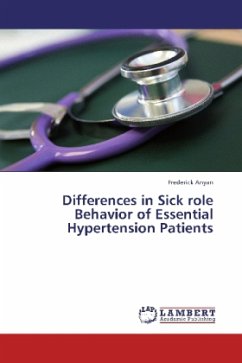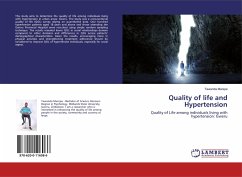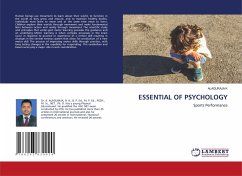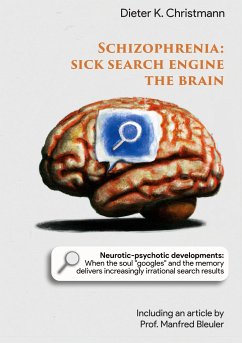
Differences in Sick role Behavior of Essential Hypertension Patients
Versandkostenfrei!
Versandfertig in 6-10 Tagen
39,99 €
inkl. MwSt.

PAYBACK Punkte
20 °P sammeln!
The theme of sick role behavior has merited numerous research publications particularly in Health Psychology. This book offers an even greater and detailed account of experiences related to sick role behavior. This book explores gender differences in essential hypertension patients understanding of illness, their reaction to diagnosis and the diagnostic procedure, their health motivation and how they cope and deal with their condition by drawing on recorded interviews in a qualitative research methodology. Analysis of the data presents comprehensive discussions on Contextualization and Definit...
The theme of sick role behavior has merited numerous research publications particularly in Health Psychology. This book offers an even greater and detailed account of experiences related to sick role behavior. This book explores gender differences in essential hypertension patients understanding of illness, their reaction to diagnosis and the diagnostic procedure, their health motivation and how they cope and deal with their condition by drawing on recorded interviews in a qualitative research methodology. Analysis of the data presents comprehensive discussions on Contextualization and Definition of Illness, Reaction to Diagnosis and Diagnostic Procedure, Activities toward Recovery and Dealing with the condition as a Patient of Essential Hypertension. Implications of the findings for intervention such as the practice of preventive health behavior, physicians attentiveness to their role in the therapeutic process and the advancement of religious practices and faith in whole-personmedicine practice are discussed in this book.












